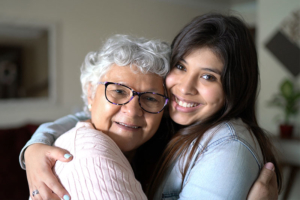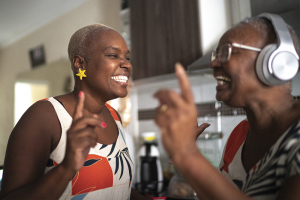Learn Why the Progression of Dementia May Vary for Latinos
 A new study sponsored by the Alzheimer’s Association is uncovering some striking findings in how dementia may present differently in Hispanic people. While additional exploration is required to fully understand whether these differences are the result of social/cultural nuances or perhaps the dementia itself, it’s worthwhile information for Latino families to know.
A new study sponsored by the Alzheimer’s Association is uncovering some striking findings in how dementia may present differently in Hispanic people. While additional exploration is required to fully understand whether these differences are the result of social/cultural nuances or perhaps the dementia itself, it’s worthwhile information for Latino families to know.
Daily Activities
One feature of the study was the considerably faster decline in the capability to execute everyday activities, like walking, getting dressed, and taking a shower, when compared with other ethnicities. Andrea Ochoa Lopez, the University of Houston doctoral student who conducted the research, clarified that the cultural dedication to looking after older loved ones may be a contributing factor.
“Some families want to start doing everything for their older members to try and remove some of the burdens and make their lives easier,” she mentioned. “But there is research showing that when cognition is declining, older people actually do better when they stay active. And there is also still stigma. They may not want their elder family member to be seen as ill or mentally unstable.”
Depression and Anxiety
While we realize anxiety and depression are risk factors for dementia, a separate research study of 5,000 people showed a significantly higher percentage of Hispanic individuals reporting these issues: more than 25%, as compared to approximately 16% and 11% in black and non-Hispanic white participants, respectively. Centering on the mental health of people with dementia is vital. Clinical psychologist Michael Cuccaro points out, “We have lots of great evidence that medications and talk therapy help, but minorities have the lowest rate of getting this help.”
Although more thorough scientific studies are necessary to better comprehend these ethnic differences in dementia, finding minorities to be involved in research is still challenging. Latinos currently comprise fewer than 8% of present dementia scientific studies – regardless of the fact the prevalence of dementia in Latinos is as much as 50% more than it is in non-Hispanic whites.
Families interested in current Latino dementia research opportunities can visit the Alzheimer’s Association’s TrialMatch website to learn more.
At Responsive Home Care, our professional caregivers are fully trained and experienced in helping seniors with whatever their particular challenges are, making life the very best it can be. We accomplish this by consulting with each senior in his or her home before the start of services, enabling us to create a customized care plan. We then carefully monitor the care plan over time to make certain that needs are always completely met, both now and as needs change as time passes.
If the need is for only a little assistance with housework and meals, transportation and companionship, or if some more specialized dementia care is needed, Responsive Home Care, the expert provider of in-home caregiver services in Fort Lauderdale and nearby areas, provides the ideal solution. Contact us to set up your free in-home consultation to learn more.










 Awkwardness. Discomfort. Disbelief. Shame. Each one of these feelings can cycle through a family caregiver’s heart when someone you care about with
Awkwardness. Discomfort. Disbelief. Shame. Each one of these feelings can cycle through a family caregiver’s heart when someone you care about with 